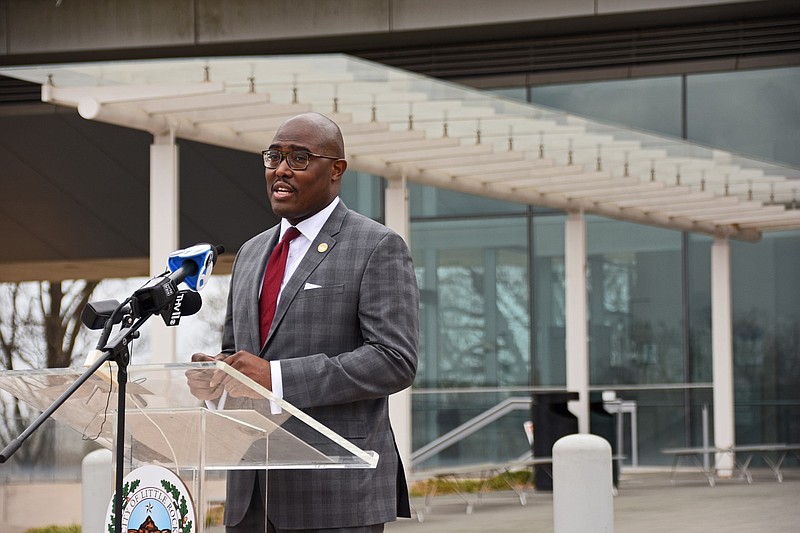This story is a part of The Article, your guide to Arkansas news and culture, presented by the Democrat-Gazette. Sign up for The Article's twice-weekly newsletter here or to see stories that have appeared in past newsletters, go here.
Little Rock voters will head to the polls Sept. 14 to decide whether to approve a one-percent sales-tax increase proposed by the mayor.
The increase would last for ten years and generate an estimated $53 million in annual revenue, or a total of more than half a billion dollars over the course of a decade.
What exactly is being proposed?
The plan calls for a 1% increase in sales tax for the next 10 years, starting in January.
However, because a separate sales tax of three-eighths percent (0.375%) is scheduled to expire at the end of this year, Little Rock's local sales-tax rate would only increase by five-eighths percent (0.625%) starting in January if voters approve Mayor Frank Scott Jr.’s proposal.
Scott announced this proposal, called “Rebuild the Rock,” during his 2021 State of the City address, and after several drafts and compromises, the city Board of Directors approved in June his request to put the proposal to a vote by city residents.
Only the directors can call an election on city matters, not the mayor.
What would the tax fund?
The Little Rock Board of Directors approved a symbolic resolution in June outlining how it would spend the money generated by the increased sales tax, mainly on parks, the city zoo, public safety, early-childhood education and infrastructure.
For parks, the directors have pledged $30 million for improvements at Hindman and War Memorial parks, plus additional funds for other projects around the city.
The plan pledges to the zoo $30 million for an interactive giraffe habitat and a North America habitat, among various other improvements.
Public safety allocations include $10 million for community policing initiatives, as well as funding for a new fire station in west Little Rock and money to replace public safety vehicles.
About $40 million over the course of the tax would go to funding child care for children up to age 3 from low-income families.
For infrastructure, more than $40 million is pledged to street resurfacing and maintenance while an additional $30 million is pledged to “strategic improvements.”
When and how do Little Rock residents cast their ballots?
The deadline to register to vote to be eligible for this election was Aug. 16.
Registered voters who would like an absentee ballot mailed can request one by Sept. 7. Absentee ballots submitted in-person must be at the county clerk’s office by Sept. 10.
Early in-person voting is from Sept. 7-13. Election day is Sept. 14, and that is also the deadline for absentee ballots coming via mail.
Read more about the plans for funds from the proposed tax from reporter Joseph Flaherty and keep up-to-date on all city news by signing up for his Week in Little Rock newsletter.
